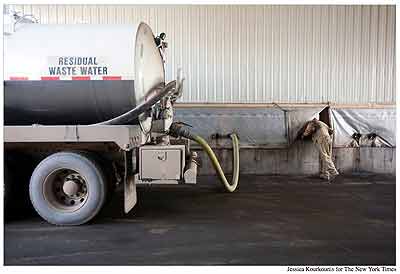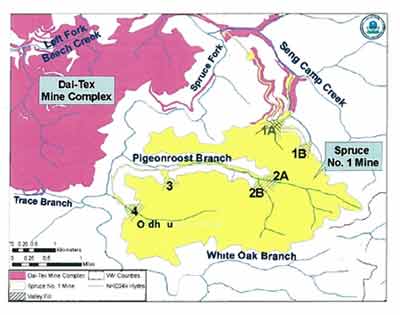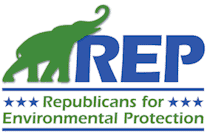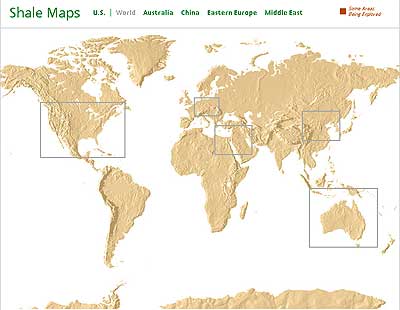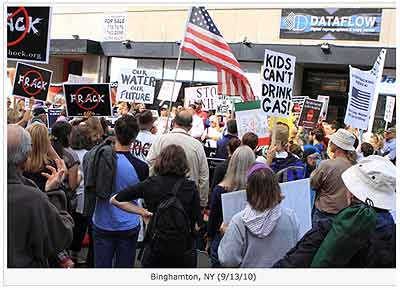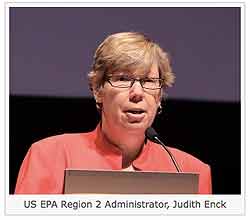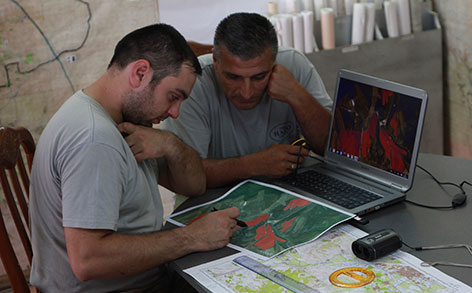Biblio
Excerpt of e-mail from Catskill Citizens for Safe Energy:
Anyone not living under a rock must be aware of the mountain of bad news that's recently come to light about fracking.
The New York Times recently ran an extensive three part series that detailed many of the dangers associated with fracking as well as the industry pressure that has forced state and federal agencies to turn a blind eye to practices known to put the public at risk.
Among the findings: Pennsylvania water treatment plants have been accepting radioactive drilling wastewater that is 2,000 times more polluted than permitted by federal drinking water standards. That means that one million gallons of wastewater would need to be diluted with 2 billion gallons of fresh water in order to meet minimal standards for human consumption.
Also last week: Arkansas ordered a temporary moratorium on new injection wells, which are suspected of causing 700 small earthquakes in the last six months alone.
Because about four million gallons of fracking fluid remains underground in each Marcellus well, every Marcellus well is an injection well. Even a single small earthquake could spell big trouble if it opens up fault lines and permits toxic fracking fluid to migrate into drinking water.
The EPA recently determined that methane leaks from natural gas operations are 9,000 times higher than previously suspected. Methane is a greenhouse gas twenty to thirty times more destructive than carbon dioxide.
See: ECONOMIC BENEFIT? REALLY?
As the horrific truth about the dangers of fracking continue to come to light, economist (and Catskill Citizens member!) Jannette Barth, Ph.D., continues to deconstruct the myth that drilling will be a boon to local communities and the state. Her latest report points out distortions and misstatements in the industry- funded studies that tout the economic benefits of fracking.
See: Janette Barth: Unanswered Questions About The Economic Impact of Gas Drilling In the Marcellus Shale: Don’t Jump to Conclusions.
See: Christopherson to study economic impact of gas drilling in Marcellus Shale.
Catskill Citizens for Safe Energy is a volunteer grassroots organization intended to give residents a voice in the emerging energy decisions in the Catskills.
Catskill Citizens for Safe Energy News Page.
See: Steve Coffman. (2009). The Safety of Fracturing Fluids – A Quantitative Assessment
According to the EPA's National Emission Inventory, Chevron was responsible for 4,030,422.95 pounds of green house gas emission pollution in Plaquemines Parish, Louisiana in 2002.
Chevron was the first international oil company to operate in Nigeria and has, for almost 40 years of operations there, practiced the wasteful process of burning off of gas associated with oil drilling.
This gas flaring has resulted in the flaring of billions of cubic feet of natural gas. These flares have and are wrecking havoc on the air and water quality in the Niger Delta. Communities living near the flares are suffering from a myriad of health issues and are more likely to get cancer and suffer from asthma as a result of breathing flare smoke. Many flares have been burning for over 20 years and in locations only a few hundred yards from the center of the nearest village.
According to the Canadian Public Health Association, gas flares contain as many as 250 toxins and their smoke emits particulate matter---including sulfur dioxide, nitrogen dioxides and carcinogenic substances as well as unburned fuel components, including benzene, toluene, xylene, and hydrogen sulfide. Exposure to benzene and its metabolites causes acute nonlymphocytic leukemia and a variety of other blood-related disorders in humans.
According to the US Environmental Protection Agency Flare smoke can cause aggravated asthma, increases in respiratory symptoms like coughing and difficult or painful breathing, chronic bronchitis, decreased lung function, and premature death.
Gas Flaring also causes acid rain, corroding roofs, acidifying lakes and streams and damaging vegetation. This acid rain, combined with frequent oil spills--totaling more than 10 Exxon Valdez spills--and dumping of toxic drilling waters into rivers has severely depleted fish stocks, which the people of the Delta rely on.
See: Chevron Human Energy Stories | Addressing Climate Change
See: Poison Fire
See: Rancho Los Malulos | A satirical view from the McGill Brothers Lease
See: Natural gas: the commodity world’s ugly duckling
See: Controversial gas 'fracking' extraction headed to Europe
See: As You Sow - Corporate Accountability, Shareholder Action, and ToxicsReduction
Photo by Alex Wong | Getty Images. See source here.
Amicus Curiae
Faith Based organizations offer information relevant to the Supreme Court deliberation on the matter of Connecticut vs. American Electric Power. 2011-03-18.
Amici curiae are fourteen faith-based organizations that are active participants in the ongoing attempt to respond to global climate change and have a strong interest in developing limits on greenhouse gases, which are the primary cause of global climate change.
Amici represent a broad spectrum of Catholic, Protestant, and Jewish communities. Although they differ on many matters of faith and policy, they are united in their concern about threats to the environment. They believe that human beings are stewards of God’s Creation and that humans have a moral obligation to prevent and mitigate harm to the planet, to our fellow humans, and to all of God’s creatures.
An amicus curiae (also spelled amicus curiæ; plural amici curiae) is someone, not a party to a case, who volunteers to offer information to assist a court in deciding a matter before it. The information provided may be a legal opinion in the form of a brief (which is called an amicus brief when offered by an amicus curiae), a testimony that has not been solicited by any of the parties, or a learned treatise on a matter that bears on the case. The decision on whether to admit the information lies at the discretion of the court. The phrase amicus curiae is legal Latin and literally means "friend of the court".
See: Gas Drilling Discussion (Suggested Agenda for) : Biblical and Theological Considerations
...The U.S. Environmental Protection Agency has vetoed the largest single mountaintop removal permit in West Virginia history.
The move is part of an Obama administration crackdown aimed at reducing the effects of mountaintop removal coal-mining on the environment and on coalfield communities in Appalachian — impacts that scientists are increasingly finding to be pervasive and irreversible.
The final EPA decision document is available here. EPA has also now posted some appendices to that document, including a response to comments.
EPA officials this morning were alerting West Virginia’s congressional delegation to their action, and undoubtedly preparing for a huge backlash from the mining industry and its friends among coalfield political leaders.
Comment (65 comments posted as of 1/14/11 1:04 P.M.) posted by rhmooney3. Jan. 13, 2011 at 1:33 P.M.
...I believe the mining industry, the entire business community and all the states want this to move through the federal courts to the U.S. Supreme Court...
P.S. As a result of this EPA action, mining companies have no choice than to play ball with the EPA — in making this decison the EPA has made a lot of other decisions yet to come.
W.Va. Senator Joe Manchin said:
Today’s EPA decision is not just fundamentally wrong, it is an unprecedented act by the federal government that will cost our state and our nation even more jobs during the worst recession in this country’s history.
While the EPA decision hurts West Virginia today, it has negative ramifications for every state in our nation, and I strongly urge every Senator and every Member of Congress to voice their opposition.
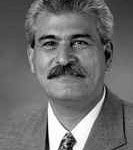
Peter S. Silva, EPA’s Assistant Administrator for Water
EPA Press Release:
CONTACT:
Jalil Isa (News Media Only)
isa.jalil@epa.gov
202-564-3226
202-564-4355
FOR IMMEDIATE RELEASE
January 13, 2011
EPA Halts Disposal of Mining Waste to Appalachian Waters at Proposed Spruce Mine: Agency cites irreversible damage to clean water, environment in the region.
WASHINGTON – After extensive scientific study, a major public hearing in West Virginia and review of more than 50,000 public comments, the U.S. Environmental Protection Agency (EPA) today announced that it will use its authority under the Clean Water Act to halt the proposed disposal of mining waste in streams at the Mingo-Logan Coal Company’s Spruce No. 1 coal mine.
Background on Clean Water Act Section 404(c)
Clean Water Act Section 404(c) authorizes EPA to restrict or prohibit placing dredged or fill material in streams, lakes, rivers, wetlands and other waters if the agency determines that the activities would result in “unacceptable adverse effects” to the environment, water quality, or water supplies. This authority applies to proposed projects as well as projects previously permitted under the Clean Water Act although EPA is not considering such action for other previously permitted projects.
With today’s (Jan. 13, 2011) action, EPA has exercised its Section 404(c) authority only 13 times in its history of the CWA. EPA recognizes the importance of ensuring that its Section 404(c) actions are taken only where environmental impacts are truly unacceptable and will use this authority only where warranted by science and the law.
Ken Ward Jr. says:
Arch Coal hasn’t responded to my query yet, but the New York Times has these comments from a company spokeswoman:
John Broder. Jan. 13, 2011. NYT. "Agency Revokes Permit for Major Coal Mining Project".
“We remain shocked and dismayed at E.P.A.’s continued onslaught with respect to this validly issued permit,” said Kim Link, the company’s spokeswoman. “Absent court intervention, E.P.A.’s final determination to veto the Spruce permit blocks an additional $250 million investment and 250 well-paying American jobs.”
“Furthermore, we believe this decision will have a chilling effect on future U.S. investment,” she added, “because every business possessing or requiring a permit under Section 404 of the Clean Water Act will fear similar overreaching by the E.P.A. It’s a risk many businesses cannot afford to take.”
Ken Ward, Jr. is a staff reporter for the Charleston Gazette, who has been nationally recognized for his writing on the coal mining industry. He is Chair of the Society of Environmental Journalists First Amendment Task Force, founded in 2002 to "to address freedom-of-information, right-to-know, and other news gathering issues of concern to the pursuit of environmental journalism."
See: WATER: Rulings Restrict Clean Water Act, Foiling E.P.A. | Mixplex
See: Lisa P. Jackson, EPA (lisapjackson) on Twitter | Mixplex
See: New WVU-Va Tech study links water quality and cancer deaths in West Virginia coalfields
See: Ecological integrity of streams related to human cancer mortality rates
Let's consider for a moment the targets the federal government chooses to make an example of.
So far, no bankers have been charged, despite the unmitigated greed that nearly brought the world economy down. No coal or oil execs have been charged, despite fouling the entire atmosphere and putting civilization as we know it at risk.
But engage in creative protest that mildly disrupts the efficient sell-off of our landscape to oil and gas barons? As Tim DeChristopher found out on Thursday, that'll get you not just a week in court, but potentially a long stretch in the pen...
Bill McKibben
Bill McKibben is the author of a dozen books on the environment, a scholar in residence at Middlebury College, and founder of 350.org. He also serves on Grist’s board of directors.
See: Tim DeChristopher | Bidder70.
See: Gas Drillers Plead Guilty to Felony Dumping Violations
See: Student Disrupts Government Auction of 150,000 Acres Of Wilderness For Oil & Gas Drilling.
See: The Need for Mass Mobilizations
See also: Video - 350.org: Because the world needs to know.
See: Amy Goodman and Juan Gonzalez. "Environmentalist Tim DeChristopher Found Guilty of Sabotaging Oil and Gas Auction; Faces up to 10 Years in Jail." Democracy Now!. March 4, 2011.
A federal proposal laying out new standards for a controversial natural-gas drilling practice called hydraulic fracturing likely won’t be issued until after the 2012 elections, an energy analyst said Thursday.
The practice is certain to be an election issue for lawmakers from states in which hydraulic fracturing is prevalent, but the timing of the standards would take that hot-button issue off the table.
Comment:
"This new process is a Godsend…BY Grandma" on 02/11/2011 at 20:52
The federal government must step in and start regulating fracking. Hydraulic fracturing should NOT be exempt from the Safe Water Drinking Act and Clean Water Act. This industry is killing people by contaminating aquifers across the nation. Fracking is shaping up to be the cause of the biggest environmental and public health disaster this country has ever witnessed. 2012 is too long to wait to start correcting this horrific wrong that has been committed against the people of the United States.
See: Toledo. Free Press. "Kasich says Marcellus Shale could be ‘godsend’ for Ohio." Toledo. Free Press. 2011-01-01.
See: U.S. Congress. Committee on Space, Science, and Technology. "Hearing Highlights Lack of Objectivity in Draft EPA Fracking Study--No Evidence of Drinking Water Contamination from Fracking, Witnesses Say". May 11, 2011
Expert reports and selections of news accounts and analysis of the breaking news concerning the meltdown of Japan's nuclear reactors ongoing since March 13, 2011.
To respond to questions we’ve been getting, we’re developing a set of responses to “frequently asked questions.” The FAQ is located here: "Nuclear Reactor Crisis in Japan FAQs", and we will continue adding to it through the week.
Follow Google News on 'meltdown'.
Contact All Things Nuclear.
A project of the Union of Concerned Scientists.
Is America witnessing the birth of a new civil war? A polarization of political ideologies has paralyzed the democratic process and poisoned the relationship needed between politics, science, and hermeneutics.
This conservative organization's action page has form letters on a number of issues that Republican voters may send to their representatives to let them know that the party line may not be in their best interests.
Whether or not the debate is about jobs, public radio, oil and gas, or America's military footprint in the world; all Americans will benefit by the preservation of our resources. Conservative Republicans, Liberal Democrats, and everyone in between and on the fringes can work together to provide the regulatory leadership that demonstrates our respect for all life and a basic human right to clean water and air.
The "Big Lie" perpetrated by climate change doubters and insincerely debated by Global Warming Experts, warrants the recall of those representatives whose bullying is tantamount to treason and rends our union vulnerable to the extremist, irresponsible policy that cites Climate Change as a lie, endangering the health and safety of our children, and putting us at the brink of disaster. (Neil Zusman, 2011-03-17).
The Senate letter, "Congress Should Pass a 'Clean' Continuing Resolution" includes:
As a Republican voter, I urge you to support a fair 2011 continuing resolution that does not target environmental and conservation programs for a disproportionate share of budget cuts and is free of the anti-environmental riders that were, unfortunately, included in a resolution that the House passed on February 19.
I understand the need to correct the federal government’s fiscal imbalances, and it is fair to require reductions in environmental and conservation programs. It is not fair, however, to require these programs to shoulder a disproportionate share of the reductions. Nor should the resolution include the shockingly extreme riders that were in the House’s resolution. These riders would weaken bedrock environmental laws, including the Clean Air Act and Clean Water Act, as well as public lands protection and wildlife conservation.
Republicans were not elected to weaken laws that protect Americans’ health and protect our nation’s scenic, historic, and wildlife treasures for future generations.
Congressional Republicans must return to the traditional conservatism that values stewardship, saving for the future, and making frugal and careful use of our country’s natural as well as its fiscal resources.
Please support a continuing resolution that takes a rational approach towards correcting our nation’s fiscal imbalances, and avoids indulging the anti-environmental agendas of political extremists.
See: Smackdown: climate science vs. climate economics.
See: Climate Co-benefits and Child Mortality Wedges.
See: Snubbing Skeptics Threatens to Intensify Climate War, Study Says.
See: Climate Zombies Now Run The House.
See: GOP Budget Amendments Would Destroy Health, Economy, Planet
See: EPA chief faces hostile House GOP
See: Energy & Commerce Committee Investigates Potential Impacts of Hydraulic Fracturing
American Electric Power v. Connecticut, argued earlier this week, spurs debate over the role of the courts in addressing climate change.
The Court heard oral argument in American Electric Power v. Connecticut on Tuesday. The case raises questions about the role of the federal courts in addressing climate change–a subject that has interested academics as well. Professors David Markell and J.B. Ruhl address the issue empirically by reviewing every climate change case brought through December 31, 2009, to determine whether courts are serving as “battlefields” in the “climate fights.”
A forthcoming article in the Yale Law Journal by Benjamin Ewing and Douglas Kysar argues that climate change litigation illustrates how tort law can prod political actors to address social problems. And John Wood’s article in the Environmental Law Reporter runs through the arguments regarding displacement of public nuisance claims in the context of climate change. All three articles contend that climate change litigation raises important questions about the relationship between the judiciary and the political branches of government. We’ll soon learn the Court’s views on these questions as well.
See: SCOTUSblog | American Electric Power Co., Inc. v. Connecticut.
See: Markell, D., and J. B. Ruhl. “An Empirical Survey of Climate Change Litigation in the United States.” Envtl. L. Rep. News & Analysis 40 (2010): 10–644. Print.
See: Ewing, B., and D. A Kysar. “Climate Change, Courts, and the Common Law.” Print.
See: Wood, John. "Easier Said than Done: Displacing Public Nuisance when States Sue for Climate Change". (February 17, 2011). Environmental Law Reporter, Forthcoming. Available at SSRN: http://ssrn.com/abstract=1763359
YES! Magazine reframes the biggest problems of our time in terms of their solutions. Online and in print, we outline a path forward with in-depth analysis, tools for citizen engagement, and stories about real people working for a better world.
Partners:
grist.org
Corporate Accountability International
Klean Kanteen
350.org
Green for All
Barefoot College of Tilonia
Small Planet Institute
Bainbridge Graduate Institute
Common Cause
Center for a New American Dream
Foreign Policy in Focus (FPIF) publishes commentaries, briefs, and reports on its website and organizes briefings for the public, media, lawmakers, and legislative staff.
As world leaders discuss the threat to the planet in various venues around the world, it’s the poor who face the dire consequences. Marginalized and vulnerable populations--from small farmers in Africa to fisher folk on the banks of island nations--suffer most from the refusal of developed nations and corporations to cut back on emissions that are heating up the planet. But these same populations offer important and sustainable solutions to global warming.
The problem is that the world’s leaders are not listening. And that is not likely to change at the meeting on climate change in Cancun, Mexico that will start at the end of November and run through December 10...
...All signs point to an intensification of market-based proposals for bringing the planet away from the brink of environmental disaster. Rather than addressing the current model of production, trade, and consumption that has caused the crisis, these false solutions aim to deepen it. A closer look at the so-called “Clean Development Mechanisms” (CDM) shows how.
The CDMs defined in Article 12 of the Kyoto Protocol are essentially a dodge that allows developed polluting countries to avoid immediate and significant cutbacks in emissions by “offsetting” them with projects in developing countries to conserve carbon sinks (areas that store carbon, such as forests and jungles) and other schemes. The $127 billion global carbon trading market has become a lucrative marketplace for turning planetary salvation into business deals. The upshot is that the polluter is allowed to keep on polluting. Meanwhile, areas previously cared for by local communities are pulled into management systems overseen by the polluters and international organizations that have purchased their “environmental services.”
Foreign Policy in Focus (FPIF) is a “Think Tank Without Walls” connecting the research and action of more than 600 scholars, advocates, and activists seeking to make the United States a more responsible global partner. It is a project of the Institute for Policy Studies.
Democracy Now Video. Interview with Dr. Theo Colborn. April 14, 2010.
"The Environmental Protection Agency has begun a review of how the drilling process known as hydraulic fracturing, or “fracking,” can affect drinking water quality.
We speak to Dr. Theo Colborn, the president of the Endocrine Disruption Exchange and one of the foremost experts on the health and environmental effects of the toxic chemicals used in fracking." [includes rush transcript]
New Jersey based blog, featuring excellent coverage of the September 2010 EPA public meeting in Binghamton, New York with photos, comments, and links.
Mr. Wolfe knows when environmental officials are telling the truth. He is not about to give up his environmental activist's passion to correct our regulatory agencies and politicians.
Judith EnckIn 1994, Mr Wolfe became a whistleblower when he disclosed a memoranda between Governor Whitman and the NJDEP Commissioner. The Whitman memo sought to downplay the public health significance of scientific research by the Philadelphia Academy of Natural Sciences that found high levels - statewide - of mercury in freshwater fish.
Whitman made false and misleading remarks to the press regarding mercury risks. Wolfe then learned that these were not inadveted errors, but were designed as a strategy to suppress, distort, fail-to-warn the public, and avoid aggressively responding to scientific research documenting high levels of mercury in NJ freshwater fish. As a result of this unauthorized disclosure, Wolfe was forced out of the Agency and later formed NJ PEER to protect consientious public employees.
In 2002, Governor McGreevey's NJDEP Commissioner Bradley M. Campbell invited Wolfe to rejoin DEP and serve as the "conscience of the Agency".
Mr. Wolfe has a Bachelor's degree in Environmental Science and Public Policy from SUNY Binghamton (1983) and attended Cornell University's Graduate School of City and Regional Planning (1983-1985).
Bill Wolfe. Nov. 22, 2010. "State Officials Block Open Testimony of DEP Nuclear Whistleblower"
DEP’s Chief Nuclear Engineer removed and “put in a broom closet” for disclosing safety risks at the oldest US nuclear power plant.
NJ State officials blocked the open testimony of nuclear whistleblower Dennis Zannoni at a Friday State House hearing.
About Bill Wolfe:
With Sierra Club, I worked with volunteers to kill the $240 million Mercer County garbage incinerator, block the Trenton/Hopewell sewer line; led the public campaign and authored the 1996 ballot question to amend the NJ Constitution to dedicate 4% of Corporate Business Tax proceeds (appx. $100 million/year) to environmental programs; authored the 1997 Watershed Management Act that established and funded NJ’s watershed management planning program; provided testimony to the US Senate in opposition to Christie Whitman as EPA Administrator; and served on numerous Legislative and DEP regulatory stakeholder groups.
Read more at SourceWatch page.
Bill Wolfe has been Director of the NJ Chapter of Public Employees for Environmental Responsibility (PEER) since June 2005.
PEER is a national non-profit alliance of local, state and federal scientists, law enforcement officers, land managers and other professionals dedicated to upholding environmental laws and values.
Google and a New York financial firm have each agreed to invest heavily in a proposed $5 billion transmission backbone for future offshore wind farms along the Atlantic Seaboard that could ultimately transform the region’s electrical map.
The 350-mile underwater spine, which could remove some critical obstacles to wind power development, has stirred excitement among investors, government officials and environmentalists who have been briefed on it.
The system’s backbone cable, with a capacity of 6,000 megawatts, equal to the output of five large nuclear reactors, would run in shallow trenches on the seabed in federal waters 15 to 20 miles offshore, from northern New Jersey to Norfolk, Va. The notion would be to harvest energy from turbines in an area where the wind is strong but the hulking towers would barely be visible.
See: Plug into a Greener Grid: RE<C
Google.org is working towards a clean energy future in a variety of ways: We're working on developing utility scale renewable energy cheaper than coal (RE<C) and accelerating the commercialization of plug-in vehicles through the RechargeIT project. Our over-arching vision is to one day transform the global economy from one running on fossil fuels to one largely based on clean energy. Our Clean Energy 2030 plan offers a potential path to do just that.
Google Earth platform to simplify siting of clean energy
See: Google Earth Outreach Showcase
See: Appalachian Voices My Connection
See: Appalachian Mountaintop Removal Tour
See: Marsh Fork Elementary: Journey Up Coal River | A Community and Strip Mining
See: Mountaintop Removal (Film)
See: Tree spiker : from Earth First! to lowbagging: my struggles in radical environmental action







